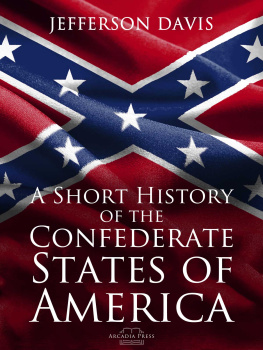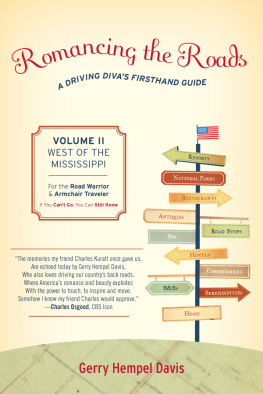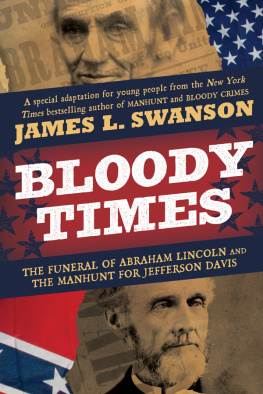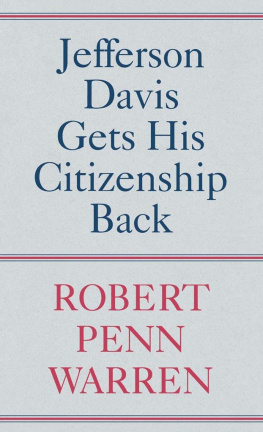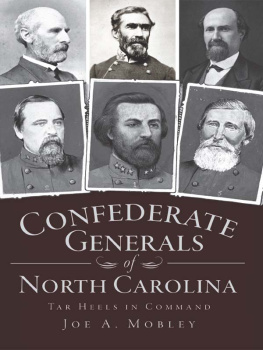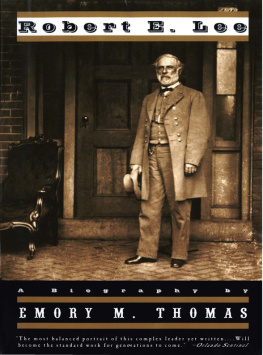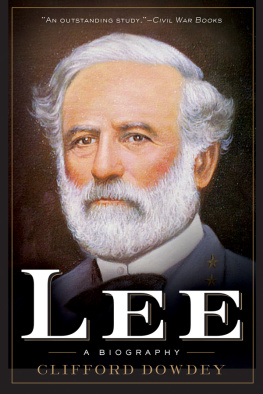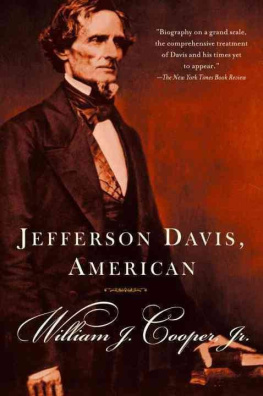Introduction
The vindication of the Southern States for their Ordinances of Secession in 1861 involves two considerations, namely: their rightful power to withdraw from the Union into which they had entered by voluntary compact; and the causes that justified the exercise of that power.
In treating this question in its twofold aspect, the legal and the moral, it is not intended to vex the weary ear by adducing time-worn arguments; but, believing the case to be one which must be adjusted finally by historical facts, the candid reader is asked, without favor or prejudice, to make a decision on the unquestionable record.
The British Colonies of North America subsequently the United States had a common allegiance to the British Crown. Otherwise they were as distinct from one another as they were from Canada, Nova Scotia, and the American islands owned by Great Britain. When, by the violation of both charter and inalienable rights, for which neither redress nor security against repetition could be obtained, some of the colonies decided to sever their connection with the British Crown, they formed an alliance, declared themselves free and independent States, and, with their united strength, made such vigorous resistance to the efforts of the Mother Country to reduce them to subjection that, finally, a Treaty of Peace was made, in September, 1783, in the following words:
ARTICLE I. His Britannic Majesty acknowledges the said United States, viz.: New Hampshire, Massachusetts Bay, Rhode Island and Providence Plantations, Connecticut and New York, New Jersey, Pennsylvania, Delaware, Maryland, Virginia, North Carolina, South Carolina, and Georgia, to be free, sovereign, and independent States; that he treats with them as such, etc., etc.
It has been contended that, although the States were severally named, the recognition was to the Union, not merely as the negotiating agent, but as the supreme authority.
The fallacy of this assumption is shown by the provisions of Articles V. and VII., recognizing the separate, independent power of the respective States to provide for the restitution of all estates, rights, and properties which had been confiscated, belonging to real British subjects; and also of the estates, rights, and properties of persons resident in districts in the possession of His Majestys arms, and who had not borne arms against the said United States, etc.
ARTICLE XII. There shall be a firm and perpetual peace between His Britannic Majesty and the said States, and between the subjects of the one and the citizens of the other. And His Britannic Majesty shall also order and cause all archives, records, deeds, and papers belonging to any of the said States, or to their citizens, which, in the course of the war, may have fallen into the hands of his officers, to be forthwith restored and delivered to the proper States and persons to whom they belonged.
The States, now recognized as free and independent, had, in November, 1777, agreed upon Articles of Confederation and Perpetual Union, which were referred to the Legislatures of the several States, and, being duly approved, were adopted by the Congress on the 9th day of July, 1778.
From these Articles of Confederation and Perpetual Union the subjoined extracts are made:
ARTICLE I. The style of this Confederacy shall be, the United States of America.
ARTICLE II. Each State retains its sovereignty, freedom, and independence, and every power, jurisdiction, and right which is not by the Confederation delegated to the United States in Congress assembled.
ARTICLE X. In determining questions in the United States, in Congress assembled, each State shall have one vote.
ARTICLE XIII. Each State shall abide by the determinations of the United States, in Congress assembled, on all questions which by this Confederation is submitted to them. And the articles of this Confederation shall be inviolably observed by every State, and the Union shall be perpetual; nor shall any alteration at any time hereafter be made in any of them, unless such alteration be agreed to in a Congress of the United States and be afterward confirmed by the Legislature of every State.
Our heroic ancestors, against fearful odds, had staked all that men hold most dear in the War for Independence. By unexampled sacrifices they gained that priceless possession. But a long, exhausting war left them poor and heavily encumbered by debts, to provide for which the Confederation had little power. The western lands, for the time unproductive of revenue but of great prospective value, were covered by claims of several States. These were, in some cases, conflicting, and, because of vaguely defined territorial limits and questionable title, the controversies were of such difficult adjustment that they continued after the war had ended.
Happily, the patriotism of the people came to the relief of the General Government and terminated the disputes by the cession of unoccupied lands to be disposed of for the public good.
The Congress applied to the States for a grant of power to regulate foreign trade and commerce, and to impose duties on imports to obtain the needed revenue. It was not found possible to obtain the unanimous assent of the States, and the current of events, including the hostile commercial policy of England, rendering the grant more and more obviously necessary to the general welfare, the Congress, on February 21, 1787,
Resolved, That it is expedient that, on the second Monday of May next, a convention of delegates, who shall have been appointed by the several States, be held in Philadelphia, for the sole and express purpose of revising the Articles of Confederation, and reporting to Congress and the several legislatures such alterations and provisions thereon as shall, when agreed to in Congress and confirmed by the States, render the Federal Constitution adequate to the exigencies of Government and the preservation of the Union.
This resolution has been quoted at length because it declares the sole purpose to be to revise the Articles of Confederation and recognizes the supremacy of the States as the power to confirm the resolution to be submitted to their several legislatures. And it is to be remembered that it required the unanimous assent of the States to make any alteration in the Articles of Confederation.
When the delegates met in convention, discussion developed the impracticability of amending the Articles of Confederation so as to make them adequate to the exigencies of government, and the convention proceeded to devise a new form of Federal Constitution. There was a well-grounded apprehension that no instrument granting the powers deemed essential would receive unanimous confirmation by the States; and it was provided, by Article XII., that
The ratification of the Convention of nine States shall be sufficient for the establishment of the Constitution between the States so ratifying the same.
Therefore the names of the States were not written in the preamble, as they had been in the first draft of the Constitution, and as had been done in the Articles of Confederation, but only the general expression, We, the People of the United States, which could mean no more or less than the people of the ratifying States.
If it be asked how could nine States consistently secede from the Confederation and Perpetual Union, of which they were a component part, and the terms of which Union could not be altered unless such alteration should be confirmed by the Legislature of every State, it is submitted, as an answer to the question, that the States, that is, the people of each State, had never surrendered their Sovereignty, and, by virtue of it, if the Government failed to fulfil the end for which it was established, they had the unalienable right to alter or to abolish it, and to institute a new government, laying its foundation on such principles and organizing its powers in such form, as to them should seem most likely to effect their safety and happiness.

